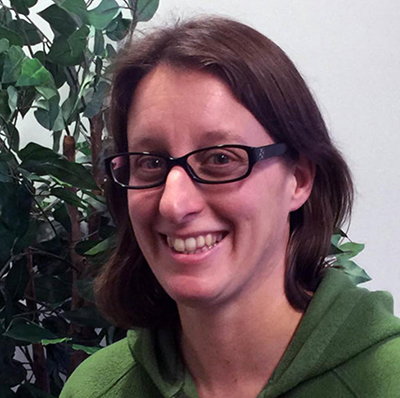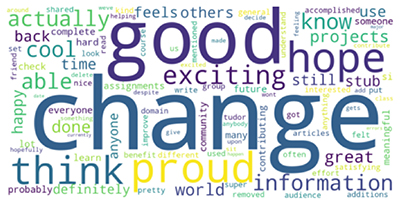Pamela Kalas is an Associate Professor of Teaching in the Department of Zoology at the University of British Columbia (UBC), Vancouver. She would like to acknowledge the two UBC staff who supported the assignment from behind the scenes: Will Engle (Strategist, Open Education Initiatives) and Rie Namba (Open Educational Resources Developer), as well as the Wiki Education team. Evan Warner is a PhD candidate in Genome Science and Technology and a Graduate Teaching Assistant at UBC.

Image courtesy Pamela Kalas, all rights reserved.
We first incorporated a collaborative Wikipedia assignment into our medium-size, upper-level biology class two years ago. The intention was to give students an opportunity to learn something about a relevant topic—and practice synthesizing this information—by expanding a Wikipedia stub of their own choosing. Seeing the students’ enthusiasm for this assignment and the excellent work that they produced (about 22,000 words and 218 citations contributed), we decided to repeat it in the 2020-21 academic year, and take a more deliberate approach in documenting students’ experiences and their perceived learning.
A thematic analysis of their final reflection assignments confirmed our anecdotal observations: students reported an overwhelmingly positive experience filled with enthusiasm, excitement, and pride about making an authentic contribution to such a major information source that they themselves regularly use. In their own words:
“It is really satisfying to go look at the page and see all my hard work for anyone to use and benefit from! I am really proud of the work I put in and hope that students will be able to use this information to understand DNA constructs better. It is super exciting and I hope that the information stays up on the page.”
“I feel really good about it. As mentioned before, it feels good to be contributing to a website that I benefitted lots from in my undergrad.”
“I feel that it’s one of the most meaningful projects I’ve done for school work! Often I write papers and complete projects just to present in front of class. With this Wikipedia page, I actually feel like I’m contributing back to the scientific community and helping others learn about this topic. Hopefully Wikipedia projects like this one will be implicated in more classes in the future.”
Although the course has been generally well-liked for many years, this is certainly the first time that an individual assignment has received such high praise from students!
Interestingly, when prompted about sharing what they learned about Wikipedia, most students expressed interest or surprise in discovering how the editing process works, and in many cases this altered their views about Wikipedia and its credibility as an information source. And it was not only the students becoming more educated about Wikipedia; there were some ‘a-ha’ moments for the teaching team, too! Considering how ubiquitous Wikipedia has become in our lives, this was a wonderful opportunity to all learn together about how its articles come to be.

Image courtesy Pamela Kalas, all rights reserved.
Students also identified several skills that the Wikipedia assignment helped them improve, including: researching information and evaluating sources, knowledge translation, and teamwork/collaboration — skills that not only align many competencies deemed essential for biology graduates, but are also among the most relevant and transferable trans-disciplinary skills.
While a number of these skills can be developed and practiced in standard university assignments, the unique element of having a real (and large!) audience seemed to enhance students’ level of care and investment in the assignment, as illustrated by this comment from a course alumna:
“There is a higher burden of responsibility when producing something that will go out into the world versus something done just for a grade. I cared a lot more about the accuracy in the Wikipedia assignment than I did about my other assignments, because a mistake I made could potentially confuse someone else.”
It is often challenging for instructors in STEM disciplines to convey the importance of transferable soft skills, and have students take them as seriously as they should be. By eliciting enthusiasm and a sense of purpose, Wikipedia assignments can serve as excellent tools to engage students with soft transferable skills in a deep and meaningful way. We would recommend this type of assignment to any colleagues!
Image credit: Xicotencatl, CC BY-SA 4.0, via Wikimedia Commons
